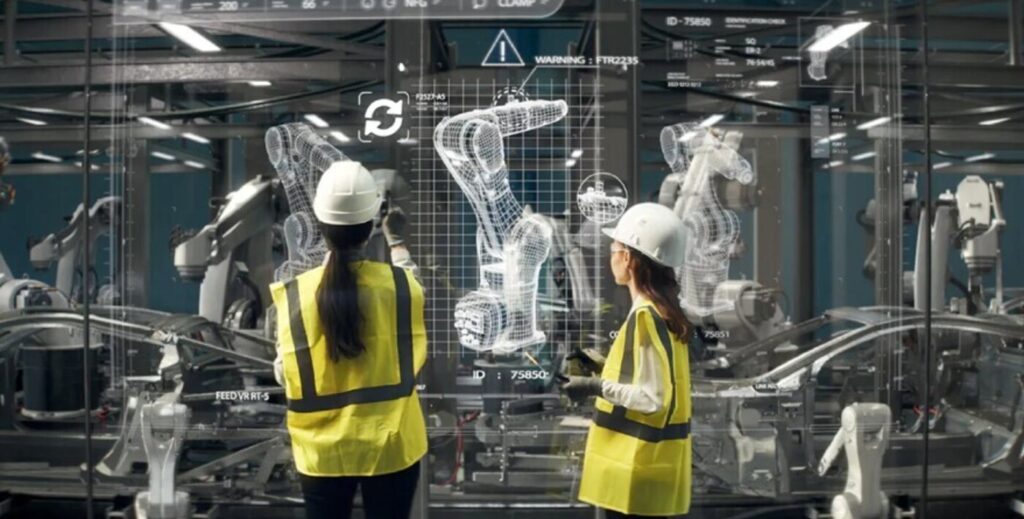Navigating the Job Market: Where Humans Still Have the Edge Over AI
As technology evolves, many job seekers face the growing concern that artificial intelligence (AI) will replace their roles. If you’re feeling uncertain about the future, you’re not alone. It’s understandable to question how humans fit into a world where machines increasingly take on tasks that once required human minds and hands. But here’s some good news—there are still plenty of industries where human skills are valued and irreplaceable.
Certain areas are uniquely suited to humans’ strengths: building connections, demonstrating empathy, thinking creatively, and solving complex, non-linear problems. Let’s explore some industries that hold promise for those who bring that special human touch.
1. Healthcare: The Power of Compassionate Care
While AI has made great strides in diagnostics, data analysis, and even robotic surgery, healthcare is still fundamentally about people caring for people. No machine can replicate a nurse’s empathy for a patient or the trust a doctor builds throughout treatment.
Healthcare roles that require a deep understanding of emotions and communication—such as mental health counselors, social workers, or patient advocates—are areas where human interaction is irreplaceable. While AI tools may assist in treatment planning or administrative tasks, the core of healthcare still hinges on human-to-human relationships.
2. Creative Industries: The Art of Innovation
Creativity is one of the greatest strengths humans possess. Human imagination and emotion fuel the creative process, whether writing, designing, filmmaking, or artistic expression. AI can help with tools for efficiency, but it cannot understand human experiences deeply enough to produce meaningful, original art.
Industries like advertising, media, publishing, and entertainment need human beings to create stories, solve branding challenges, and offer fresh perspectives. People will always seek connection through creativity, and AI can never fully replace that.
3. Education: The Human Element of Learning
Education is far more than just delivering facts. It’s about inspiring students, fostering curiosity, and adapting to their unique learning styles. While AI can provide personalized learning paths or assist with grading, the role of a teacher, mentor, or coach requires patience, empathy, and the ability to nurture growth.
Careers in education—especially those focused on student development, counseling, and classroom interaction—remain vital and deeply human-centered. The bond between a teacher and their students is irreplaceable and will always be an area where humans have an edge.
4. Customer Service: Human Problem Solvers
AI chatbots are a helpful first step in customer service, but when problems become complex, customers often seek human assistance. Human communication is key, whether it’s handling a sensitive issue, dealing with frustration, or solving a multi-layered problem.
Customer service jobs that involve relationship-building, troubleshooting, and conflict resolution will continue to thrive. Companies prioritizing human-centered customer service understand that AI alone can’t replicate trust, empathy, and understanding.
5. Skilled Trades: Craftsmanship and Adaptability
Construction, plumbing, electrical work, and other skilled trades require manual agility, adaptability, and practical problem-solving. While some automated systems can assist in these fields, many tasks require improvisation and creativity based on changing conditions—something machines aren’t well equipped for.
Tradespeople are valued for their technical skills, ability to think on their feet, and ability to create solutions tailored to real-world challenges. These are human traits that machines have yet to master.
6. Human Resources: Managing People, Not Machines
AI can streamline HR processes, but managing people—resolving conflicts, fostering company culture, and driving employee engagement—requires a deep understanding of human behavior.
Careers in human resources will continue to focus on the emotional intelligence needed to build successful teams, mediate disputes, and create a positive workplace environment. AI can analyze data, but it can’t comprehend the nuances of workplace dynamics or the complex feelings of employees.
Embrace Your Humanity
The rise of AI doesn’t mean the end of human jobs. It’s simply a shift in the kinds of skills and roles that are most needed. Industries that prioritize emotional intelligence, creativity, critical thinking, and human connection will continue to prioritize human workers over machines.
If you’re a job seeker concerned about the impact of AI, take comfort in knowing that your ability to understand, empathize, and connect with others gives you an advantage that no machine can duplicate. Keep honing those uniquely human skills, and you’ll find that the future still has room for you—perhaps more than ever.
Final Thoughts: Stay Curious and Flexible
While it’s essential to focus on industries where humans thrive, staying adaptable is equally important. The world is changing rapidly, and being open to learning new skills, particularly those that involve working alongside AI, will ensure you remain competitive in the evolving job market.
Ultimately, the most successful job seekers remain curious, adaptable, and human despite technological change. Your value doesn’t diminish in the age of AI—it simply shifts, and with it comes new opportunities to shine.

Elizabeth Ruiz, Strategic Communication and Leadership Expert – Elizabeth researches and writes about communication and leadership while not taking or teaching a class. She applies leadership theories to help corporate, governmental, and nonprofit organizations in management consulting, strategic HR, and organizational effectiveness, focusing on ethics, research, and policymaking. She writes about strategy, leadership, management, psychology, and communication. Elizabeth believes that leaders never stop learning. Connect with Elizabeth on LinkedIn.
